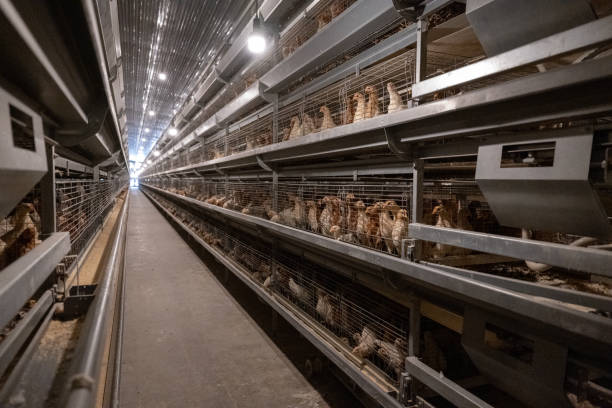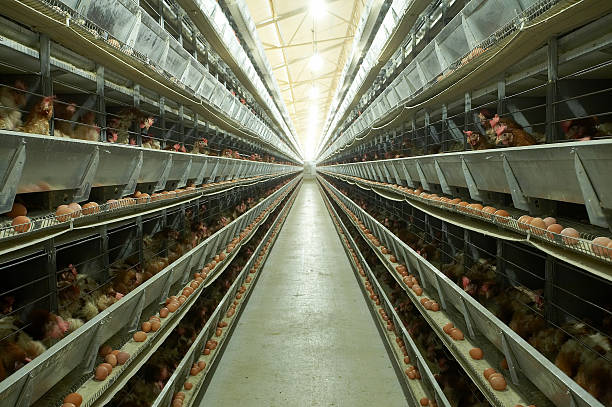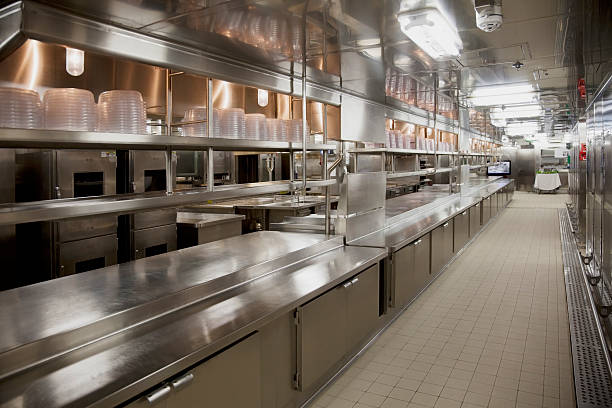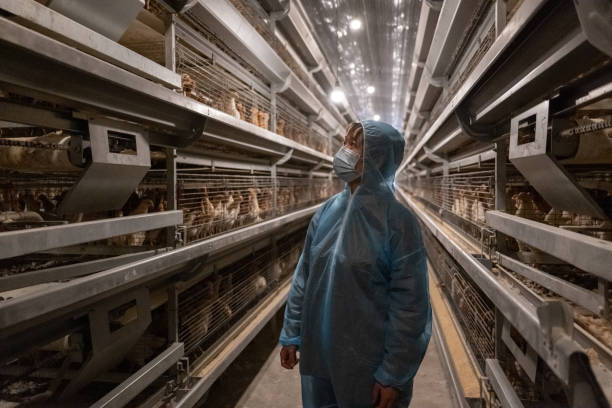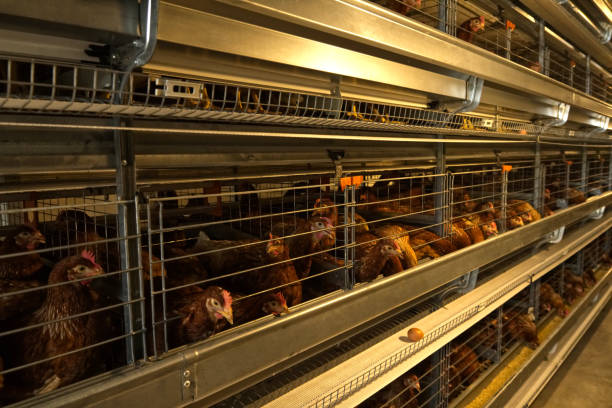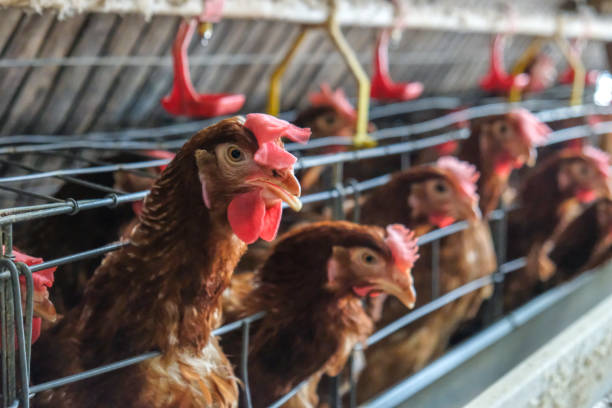Maximize Efficiency: Automatic Chicken Cage Systems for 50,000 Chickens in Zambia
Maximize Efficiency: Automatic Chicken Cage Systems for 50,000 Chickens in Zambia
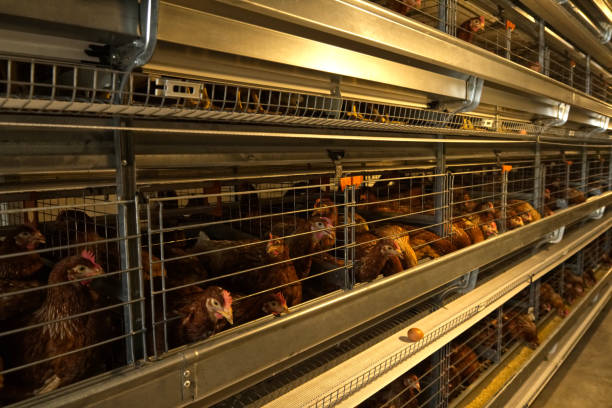
Zambia’s poultry industry is on the rise, and for ambitious farmers looking to scale their operations, efficiency is the name of the game. Managing 50,000 chickens is no small feat. Traditional farming methods can quickly become overwhelming, leading to increased labor costs, higher mortality rates, and ultimately, reduced profitability. This is where automatic chicken cage systems come into play, offering a game-changing solution for maximizing efficiency and optimizing every aspect of your poultry farm. This article delves into the profound benefits of implementing automatic chicken cage systems for a large-scale operation of 50,000 chickens in Zambia, focusing on the practical advantages, the various types of systems available, and key considerations for successful implementation.
The inefficiencies inherent in manual chicken farming are significant, especially when dealing with such a large flock. Manually feeding, watering, and cleaning up after 50,000 chickens requires a substantial workforce and consumes a considerable amount of time. It also opens the door to inconsistencies in feed distribution, water availability, and sanitation, which can negatively impact the health and productivity of your flock. Automatic chicken cage systems directly address these challenges by automating essential tasks, streamlining operations, and significantly boosting overall efficiency.
One of the primary benefits of automatic systems is the significant reduction in labor costs. By automating feeding, watering, egg collection, and waste removal, you can drastically reduce the number of workers required to manage your farm. These systems deliver precise amounts of feed to each cage at predetermined intervals, ensuring consistent nutrition and minimizing feed wastage. Automatic watering systems provide a continuous and clean water supply, preventing dehydration and promoting healthy growth. Automatic egg collection systems gently gather eggs and transport them to a central collection point, minimizing breakage and improving egg quality. Finally, automated manure removal systems efficiently remove waste, improving hygiene and reducing the risk of disease outbreaks. All these improvements lead to less reliance on manual labor, allowing you to allocate your resources more effectively and significantly reduce operational expenses.
Beyond labor savings, automatic chicken cage systems offer numerous advantages in terms of improved flock health and productivity. The controlled environment within the cages, coupled with consistent access to food and water, promotes uniform growth and reduces stress levels. This leads to stronger, healthier birds that are more resistant to disease. The improved hygiene resulting from automated waste removal systems further reduces the risk of disease outbreaks, minimizing mortality rates and veterinary costs. Furthermore, the optimized living conditions encourage higher egg production in laying hens and faster growth rates in broiler chickens, ultimately leading to increased profitability. The precision and consistency of these systems also allow for better monitoring of flock performance, enabling you to identify and address potential problems early on.
When considering automatic chicken cage systems for your farm in Zambia, it’s crucial to understand the different types available and select the system that best suits your specific needs and budget. Generally, these systems fall into two main categories: A-frame cages and H-frame cages.
A-frame cages are a popular choice for smaller to medium-sized operations. They are relatively simple in design and offer good ventilation and ease of management. However, they typically require more floor space than H-frame cages. A-frame systems are often a more economical option upfront, making them accessible to farmers with limited capital.
H-frame cages are designed for larger-scale operations and offer superior space utilization. They are arranged in multiple tiers, maximizing the number of chickens that can be housed in a given area. H-frame systems often incorporate more advanced automation features, such as automatic manure removal belts and climate control systems, further enhancing efficiency and productivity. While the initial investment in an H-frame system is higher, the long-term benefits in terms of reduced labor costs, increased productivity, and improved flock health can result in a higher return on investment.
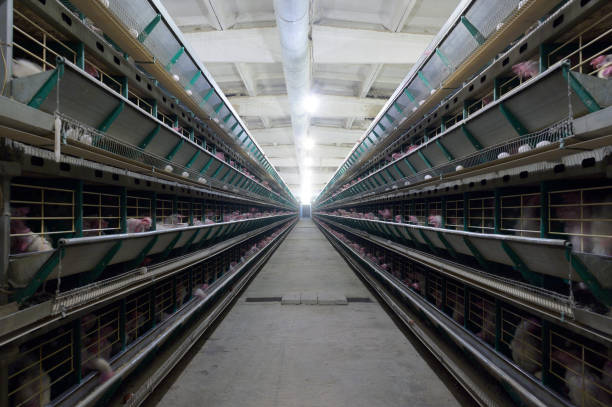
Within these two categories, you’ll also find variations in cage design, feeding systems, watering systems, egg collection methods, and manure removal systems. It’s important to carefully evaluate the different options and choose the features that best align with your specific goals and resources.
Implementing automatic chicken cage systems requires careful planning and execution. Here are some key considerations to ensure a successful transition:
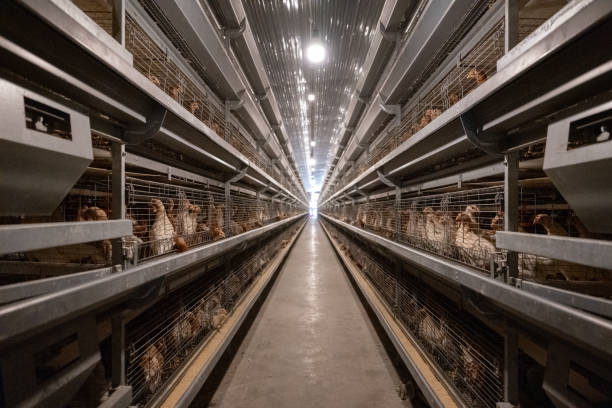
Site Preparation: Proper site preparation is essential for ensuring the stability and longevity of your chicken house. This includes leveling the ground, providing adequate drainage, and constructing a solid foundation. The building should be designed to provide adequate ventilation, natural light, and protection from the elements. Strong consideration should be given to the local climate and weather patterns in Zambia when choosing building materials and designing the ventilation system.
System Selection: Choosing the right automatic chicken cage system is critical for maximizing efficiency and profitability. Consider the size of your flock, the available floor space, your budget, and your long-term goals. Work with a reputable supplier who can provide expert advice and guidance on selecting the system that best meets your needs. Don’t just focus on the initial cost; consider the long-term operating expenses, including energy consumption, maintenance costs, and labor savings.
Installation and Training: Proper installation is essential for ensuring the optimal performance of your automatic chicken cage system. Work with a qualified installer who has experience with similar systems. Once the system is installed, it’s crucial to provide your staff with comprehensive training on how to operate and maintain the equipment. This will minimize the risk of breakdowns and ensure that the system is used effectively.
Biosecurity Measures: Maintaining strict biosecurity measures is essential for preventing disease outbreaks and protecting the health of your flock. This includes implementing a rigorous cleaning and disinfection program, controlling access to the farm, and monitoring the health of your birds on a regular basis. Automatic chicken cage systems can facilitate biosecurity by reducing human contact with the birds and improving hygiene.
Management and Monitoring: Even with automated systems, effective management and monitoring are essential for maximizing productivity and profitability. Regularly monitor feed consumption, water intake, egg production, and bird health. Use the data to identify potential problems early on and take corrective action. Keep detailed records of all aspects of your operation, which will help you track performance over time and make informed decisions.
Power Supply: Zambia’s power grid can be unreliable in some areas. It’s crucial to have a reliable backup power source, such as a generator, to ensure continuous operation of your automatic chicken cage system in the event of a power outage. This will prevent disruptions in feeding, watering, and ventilation, which can negatively impact the health and productivity of your flock. Consider investing in a solar power system to reduce your reliance on the grid and lower your energy costs.
Regular Maintenance: Like any mechanical system, automatic chicken cage systems require regular maintenance to ensure optimal performance and prevent breakdowns. Develop a preventative maintenance schedule and stick to it religiously. This includes lubricating moving parts, inspecting belts and chains, cleaning sensors and filters, and calibrating equipment. Promptly address any repairs or maintenance needs to avoid more costly problems down the road.
By carefully considering these factors and working with experienced professionals, you can successfully implement automatic chicken cage systems and unlock the full potential of your poultry farm in Zambia. The path to increased efficiency, improved flock health, and higher profitability starts with embracing the advantages of automation. The investment in automatic systems is not just about technology; it’s an investment in the future of your business and the sustainable growth of Zambia’s poultry industry. With careful planning, diligent management, and a commitment to best practices, you can reap the rewards of a modern, efficient, and profitable poultry operation.



